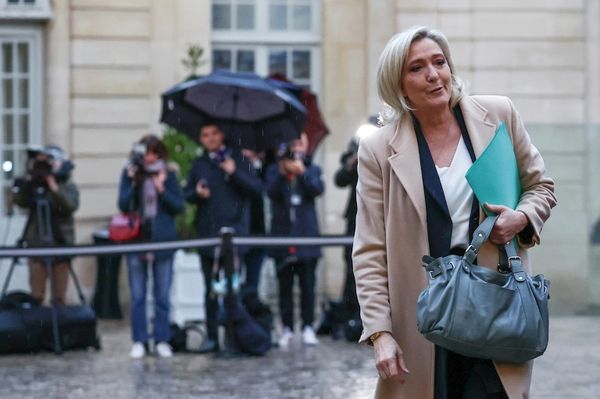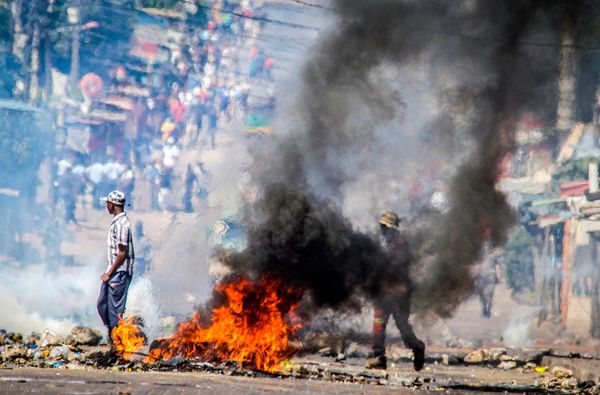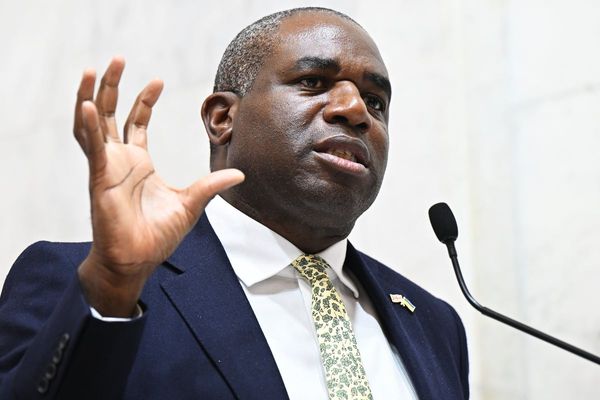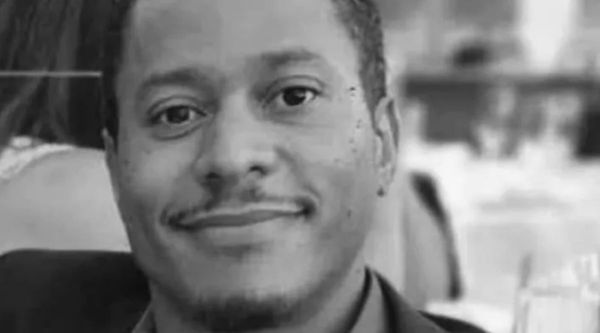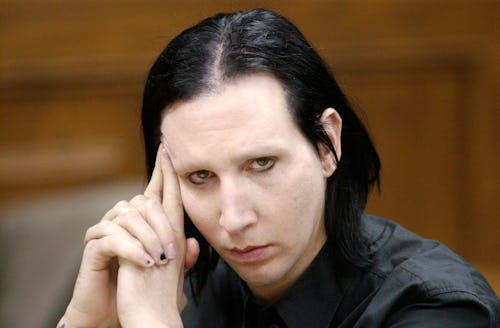
As Marilyn Manson is finally seeing his day in court after being accused by multiple women in February of a myriad of abuses, things are getting complicated. A California judge dismissed of one of four sexual abuse lawsuits against the rock star this week — showing just how difficult it is for women to find justice against their accusers.
On Tuesday, Judge Gregory Keosian sustained Marilyn Manson's (legal name Brian Warner) objection and dismissed a suit by a woman listed in court documents anonymously as Jane Doe. The suit alleged both rape and a threat against her life after the two began a relationship in 2011. The judge cited that the claims of repressed memories were not detailed enough to invoke the "delayed discovery" rule that would overturn the statute of limitations.
Doe has 20 days however to amend her lawsuit for reconsideration. Doe's attorneys Adam Wolf and Tracey Cowan are telling the media, "Marilyn Manson wants to silence our client about her rape. He tried to use technical legal arguments to get her case thrown out altogether. The judge thoughtfully analyzed the case law, and rightfully held that her case can go forward, so long as she amends her Complaint to add some additional details.”
Manson faces three other lawsuits alleging abuse. Model Ashley Morgan Smithline accused Manson of sexual assault, sexual battery, intentional infliction of emotional distress, human trafficking, and unlawful imprisonment, and his former assistant Ashley Walters has sued for similar abuses. Game of Thrones actress Esmé Bianco has also filed a suit against Manson for rape and sexual battery, which he has filed a motion to dismiss.
Outside of the courts, over a dozen other women have alleged similar patterns of abuse, including Manson's former fiancé Evan Rachel Wood, who stated that Manson "horrifically abused me for years" and publicly described insidious, premeditated behavior that began when she was a teenager.
Abuses of this nature are incredibly hard to prove in court unless somehow it was recorded. That's part of how the patriarchy has perpetuated these cycles of sexist and violent abuse for so long — it becomes a "he said, she said" battle, and internal misogyny has us believe that women are hysterical and can't be trusted with their own emotions or even their perceptions of reality sometimes. Of every 50 rape cases, 49 of the accused assailants go free. It's already a horrifying process to relive one's attacks while completing a rape kit or levying an accusation; it's made even worse when a trial is drawn out, or when a judge and jury determine insufficient evidence to convict.
It takes so many women, working in a coordinated effort of support to seek justice in these cases of sexual misconduct. The Harvey Weinstein case and the Bill Cosby case both required dozens of women over the course of years to not just tell their stories, but face extreme public scrutiny in order to get some kind of justice.
That's what Manson's accusers had to do as well, band together in a coordinated effort in order to be heard and believed. What Manson's accusers allege isn't just naughty rockstar behavior, it's a pattern of abuse. Phoebe Bridgers even came forward in support of Manson's accusers recounting touring Manson's house as a teenaged fan. She said, "he referred to a room in his house as the ‘rape room.’ I thought it was just his horrible frat boy sense of humor. I stopped being a fan. I stand with everyone who came forward."
Only time will tell whether Manson will face any real legal retribution for his decades of alleged abusive behavior. But considering his appearance at Kanye's Donda listening event, he likely will continue to create as an artist unencumbered — and with a system that rarely penalizes accused rapists, if ramifications come at all they’re likely still a long way off.
